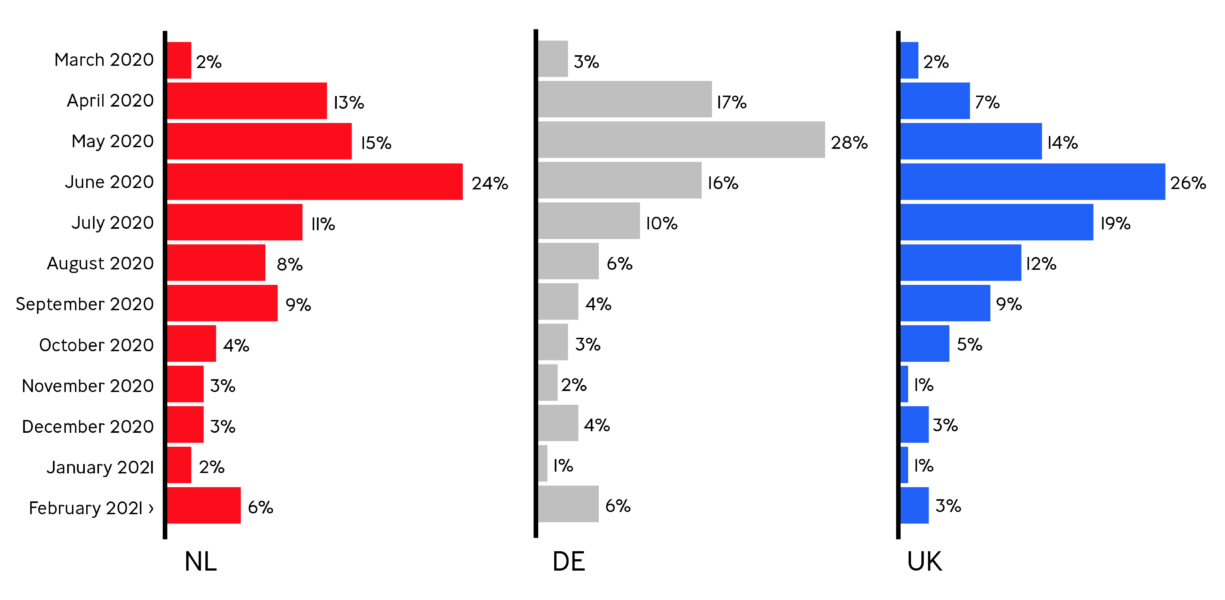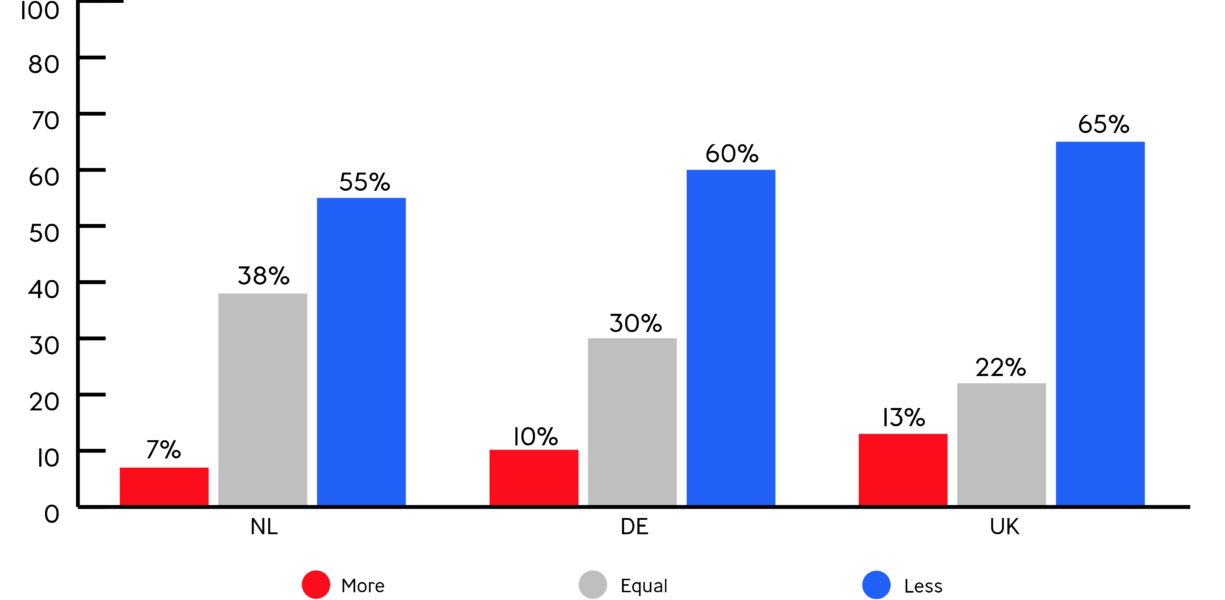Expectations for the future
There are different perspectives on the extent of government measures. In the UK, opinion is divided on whether we face stricter measures in the coming week, 49% expects the government will take even stricter measures within the upcoming week to decrease the spreading of the coronavirus. In the Netherlands and Germany, it seems there is still room for the lockdown to be tightened up.

BACK TO “NORMAL”
The spreads show a confused picture on when life will return to ‘normal’ (and maybe what ‘normal’ is). The majority think that will be within 3-4 months in the UK, but still 34% think it will be beyond that. This might also reflect what people want to happen and whether measures really will be ‘dropped’ vs phased out. There is a similar picture in the Netherlands but expectations are for ‘normal’ life to return earlier in Germany. This might also reflect when stricter measures were initially put in place.

Activities
The strict ‘stay at home’ measures in the UK are having a big impact on levels of activity. While people are doing more chores and entertaining themselves more often (via books and video), there is less cycling, less running and less working out. People in the Netherlands and Germany also appear to have become less active.
CHANGE IN FOOD AND DRINKING BEHAVIOUR
Lockdown measures are driving people in the UK to satisfy two main needs in their revised habits: more healthy consumption (including eating less meat and drinking less alcohol) at the same time as indulging themselves and snacking more. A balanced approach! This duality is not evident in the Netherlands or Germany where there is more healthy consumption with less indulgence and snacking.
VISITING THE SUPERMARKET
The advice in the UK is to only do essential grocery shopping and ideally only once a week and people are evidently complying with that. The majority of people are now visiting supermarkets less often. However, this does not mean that they are spending less or buying certain categories less frequently. Grocery shopping behaviour is less likely to have changed in the Netherlands.

CUTTING COSTS
People in the UK are more likely to be exercising caution in expenditure than in the Netherlands and Germany. The plan is to cut back on spending on many aspects of life, but with pubs, bars, clubs and restaurants closed, there will be a lot less spending on going out. Cut backs will also come in bigger ticket items, clothing, holidays and subscriptions.
WHAT SHOULD ADVERTISERS DO?
In the UK, 80% of people feel brands should adjust their advertising to reflect the ‘new normal’ and the situations they are in with their own lives. Attitudes and behaviours are changing and the opportunity for brands is to relate to that in the right way.

REQUEST THE REPORT
Curious about all the results? Request the full report through the form below.
RESEARCH METHOD DVJ INSIGHTS
The sample for this study consists of over 500 people per measurement. This number is large enough for reliable results. In addition, a representative sample by gender and age, education level and region were used. Based on this sampling method, we can state that the results represent the opinion of the United Kingdom as it was at the time of measurement.